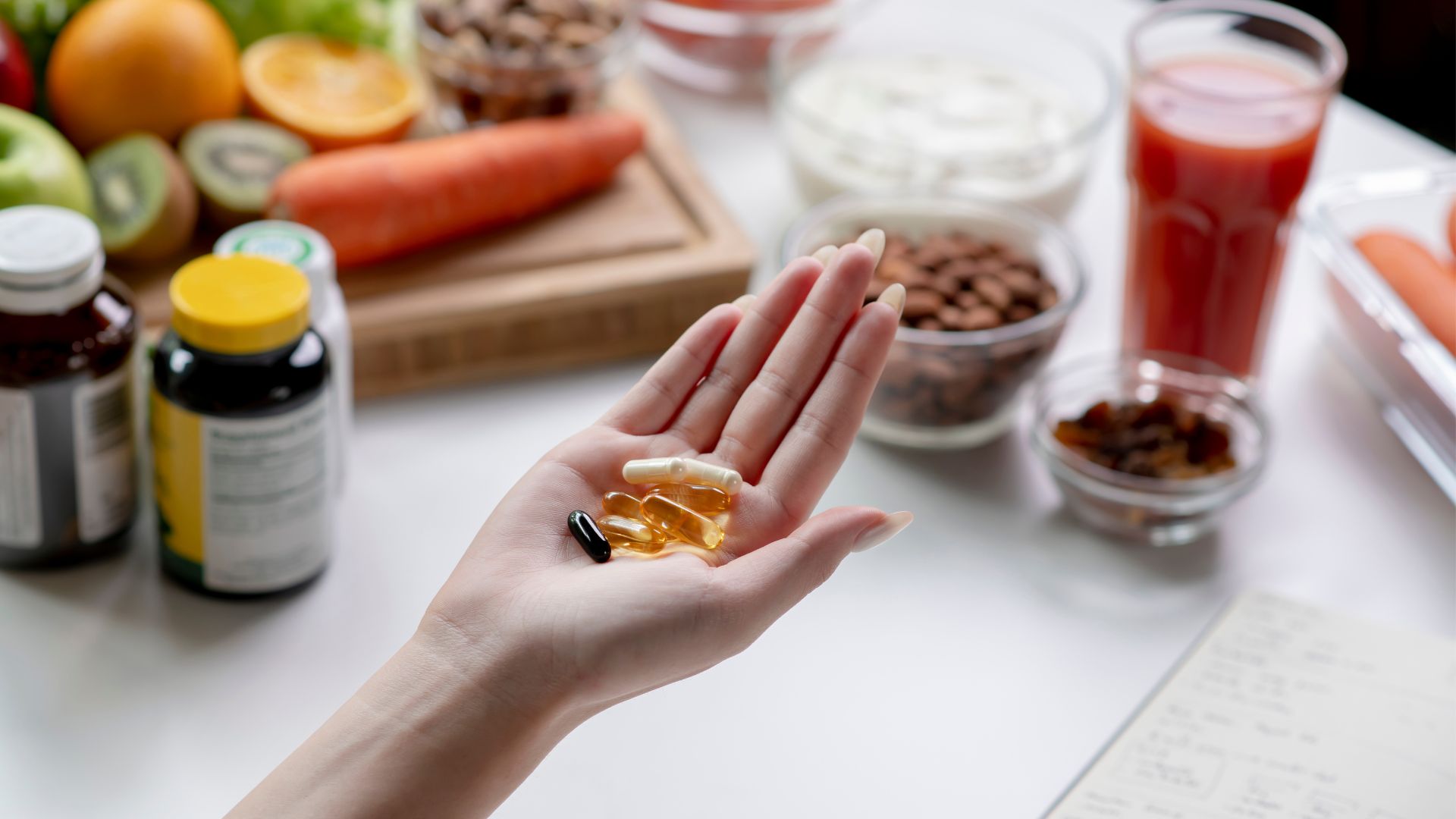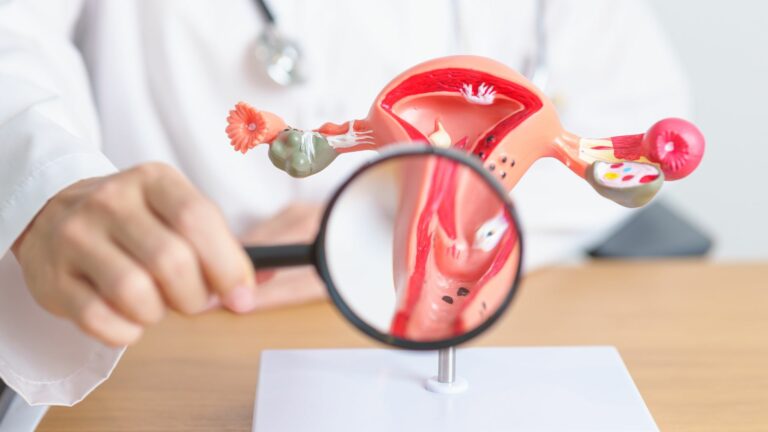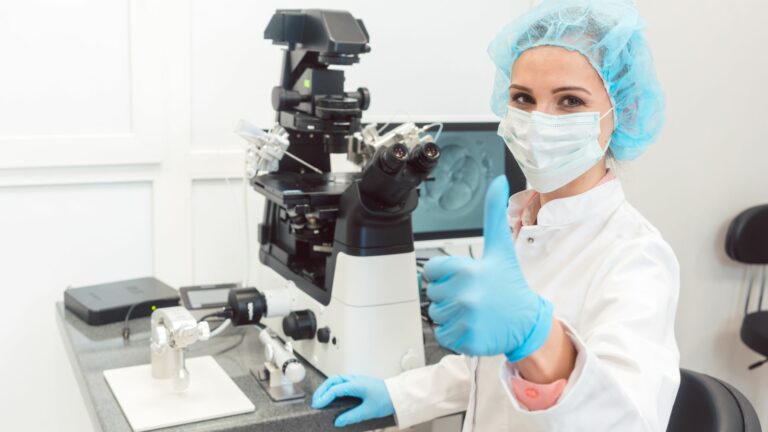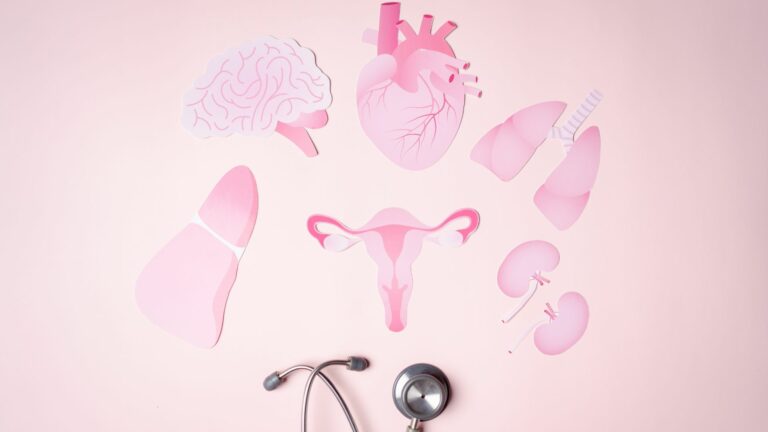
In the journey of in vitro fertilization (IVF), couples often seek ways to optimize their chances of success. One area of interest is the role of dietary supplements in supporting IVF outcomes.
This article delves into the current understanding of supplements and their potential impact on IVF success rates in India, based on available research and expert insights.
Key Takeaways
| Supplement | Potential Benefits | Considerations |
|---|---|---|
| Folic Acid | Reduces risk of neural tube defects | Start early, consult doctor for dosage |
| Vitamin D | May improve embryo quality and pregnancy rates | Get tested, aim for moderate sun exposure, supplement if deficient |
| Prenatal Vitamins | Provide essential nutrients for egg quality and reproductive health | Choose a reputable brand, start 3 months before IVF |
| CoQ10 and Omega-3 | Potential benefits, but more research needed | Discuss with doctor, focus on dietary sources |
| DHEA and Herbs | Lack strong evidence, potential side effects and interactions | Consult doctor before use, prioritize evidence-based practices |
Supplements with Established Benefits for IVF Success in India
Folic Acid: Your Body’s Building Block for a Healthy Pregnancy
Folic acid, a synthetic form of Vitamin B9, plays a crucial role in DNA synthesis and cell division. These processes are vital for fetal development.
The Indian Council of Medical Research (ICMR) recommends that all women of reproductive age take a daily 400 mcg folic acid supplement to reduce the risk of neural tube defects by up to 70%.
Tips for Folic Acid Supplementation:
- Start early, ideally in the months before conception and during pregnancy
- Discuss your specific needs with your doctor, especially if you have a family history of neural tube defects or take medications that can interfere with folate absorption
For more information, visit the ICMR website and read about folic acid and birth defects on the CDC website.
Vitamin D: The Sunshine Vitamin and its Potential Impact on IVF Success
Vitamin D, a fat-soluble vitamin, is essential for bone health, immune function, and cell growth. Studies reveal a high prevalence of Vitamin D deficiency in India, with estimates suggesting a deficiency rate of 70-90% in the general population. Women tend to be more affected due to biological factors and lower sun exposure.
Emerging research suggests a connection between sufficient Vitamin D levels and improved IVF outcomes, including better embryo quality and higher pregnancy rates. However, more studies are needed to confirm a definitive cause-and-effect relationship.
Steps to Optimize Vitamin D Levels:
- Get tested to check your Vitamin D levels
- Aim for moderate, unprotected sun exposure (without burning) for 10-15 minutes most days
- If deficient, follow your doctor’s recommended supplement dosage
Learn more about Vitamin D on the National Institutes of Health (NIH) website.
Importance of Prenatal Vitamins for IVF Success
While a balanced diet and nutrition during IVF is crucial, prenatal vitamins can address potential nutritional gaps during preconception and IVF cycles.
They contain optimal amounts of folic acid, iron, iodine, calcium, and other pregnancy-critical vitamins and minerals.
Adequate intake of these nutrients can support healthy egg (oocyte) development and overall reproductive health.
Tips for Prenatal Vitamin Use:
- Choose a high-quality prenatal vitamin specifically formulated for IVF, as recommended by your doctor
- Start taking prenatal vitamins at least 3 months before beginning your IVF cycle
- Take your prenatal vitamins daily, as directed by your doctor
Remember, while these supplements have established benefits, it’s essential to consult your doctor to personalize your supplement regimen based on your individual needs and medical history.
Have you discussed supplement options with your fertility specialist? Share your experiences in the comments below!
Supplements with Potential Benefits for IVF Success (Needs Further Research)
Coenzyme Q10 (CoQ10): Cellular Energy and Antioxidant Powerhouse
Coenzyme Q10 (CoQ10) is a naturally occurring substance in the body that is essential for cellular energy production. It also acts as a powerful antioxidant, protecting cells from damage.
As egg quality naturally declines with age, and oxidative stress plays a role, CoQ10 could potentially protect eggs, especially in older women.
Some studies also suggest that CoQ10 may help improve ovarian response to IVF stimulation medication, but more research is needed.
Tips for CoQ10:
- Consult your fertility specialist to discuss the potential benefits and risks of CoQ10 based on your individual case
- Focus on dietary sources like organ meats, fatty fish, whole grains, and vegetables like broccoli and spinach
- If your doctor recommends supplementation, choose a high-quality form of CoQ10 from a well-established brand
For more information, visit the Linus Pauling Institute’s page on CoQ10 and search for CoQ10 on the American Society for Reproductive Medicine website.
Omega-3 Fatty Acids: Fighting Inflammation and Supporting Fertility
Omega-3 fatty acids are essential fats that our bodies cannot produce. The main types are ALA (found in plant foods), EPA, and DHA (found in fatty fish).
They play a vital role in reducing inflammation and maintaining a healthy hormonal balance. Chronic inflammation can negatively impact fertility, so the anti-inflammatory properties of Omega-3s could potentially improve the reproductive environment.
Additionally, Omega-3s might have a role in the healthy production and balance of reproductive hormones.
Tips for Omega-3 Fatty Acids:
- Prioritize whole food sources like fatty fish (salmon, tuna, mackerel, sardines), flaxseeds, chia seeds, walnuts, and fortified foods
- Discuss with your doctor or registered dietician about the potential need for an Omega-3 supplement containing EPA and DHA
- Always choose high-quality supplements from reputable brands and talk to your fertility specialist about the potential benefits specific to your IVF journey
Learn more about Omega-3 fatty acids on the Office of Dietary Supplements (ODS) website and read about Omega-3 in fish on the Mayo Clinic website.
Do you incorporate Omega-3 rich foods into your IVF diet? Share your favorite recipes in the comments!
It’s important to note that while CoQ10 and Omega-3s show promise, more rigorous studies are needed to definitively determine their impact on IVF success rates.
Supplements Lacking Strong Evidence for IVF Success
DHEA – Proceed with Caution Due to Mixed Results and Side Effects
Dehydroepiandrosterone (DHEA) is a hormone naturally produced by the adrenal glands, which the body converts into other hormones like estrogen and testosterone.
Some healthcare providers may suggest DHEA to improve ovarian reserve and egg quality, particularly for women with diminished ovarian reserve or those of advanced maternal age.
However, studies on DHEA for IVF success have yielded mixed results. While some show a potential benefit, others show no significant improvement in IVF outcomes.
Additionally, long-term safety data on DHEA supplementation, especially in the context of IVF, is lacking. DHEA can also cause hormonal side effects, including acne, unwanted hair growth, and voice deepening.
Tips for Considering DHEA:
- Discuss the potential benefits and risks of DHEA supplementation with your fertility specialist before considering it, as it is not a one-size-fits-all solution
- Focus on evidence-based practices for improving IVF success and consult your doctor for personalized guidance
For more information, search for DHEA on the American Society for Reproductive Medicine (ASRM) website.
Herbs and Ayurvedic Supplements: A Promising Area Awaiting Scientific Confirmation
Herbal remedies and Ayurvedic medicine have a long history of use in promoting fertility and overall health in India.
However, while some herbs and Ayurvedic preparations may have anecdotal benefits, large-scale, well-designed clinical studies are needed to confirm their effectiveness for improving IVF success rates.
It’s crucial to note that some herbs can interact with medications, including those used during IVF protocols. This can potentially lead to complications.
Always discuss any herbal supplements you’re considering with your fertility specialist before taking them to assess potential interactions with your medications and treatment plan.
Tips for Considering Herbal and Ayurvedic Supplements:
- Prioritize proven fertility treatments and lifestyle modifications recommended by your doctor for optimizing your IVF journey
- Consult the National Center for Complementary and Integrative Health (NCCIH) website for information on herbs and supplements, but always consult your doctor before starting any
Remember, supplements can play a supporting role, but they are not a magic bullet for IVF success. Always prioritize personalized medical guidance and established treatment protocols for the best outcomes.
Key Reminders and Considerations for Using Supplements During IVF
Doctor Consultation – Your Stepping Stone to Safe and Effective Supplementation
Don’t rely on a one-size-fits-all approach when it comes to supplements and IVF. Schedule a consultation with your fertility specialist to discuss your specific needs and create a personalized supplement plan that considers:
- Your overall health and medical history
- Any medications you’re currently taking (to avoid potential interactions)
- The specific medications used in your IVF protocol
Your doctor is the best resource for:
- Recommending appropriate supplement dosages based on your individual needs
- Identifying potential interactions with your IVF medications to prevent complications
- Guiding you towards reputable supplement brands that adhere to quality standards
Supplements – Supporting Players, Not Replacements for Healthy Habits
While supplements can help fill nutritional gaps, they should not replace a balanced IVF diet rich in a variety of fruits, vegetables, whole grains, lean protein sources, and healthy fats.
This provides essential nutrients to support your overall health and potentially improve egg and sperm quality.
Focus on key lifestyle factors that can significantly impact fertility:
| Factor | Description |
|---|---|
| Weight Management | Maintaining a healthy weight range can optimize hormonal balance and improve IVF success rates. |
| Adequate Sleep | Aim for 7-8 hours of quality sleep each night. Sleep deprivation can disrupt hormone regulation and impact fertility. |
| Stress Reduction | Chronic stress can have a negative effect on reproductive health. Practice relaxation techniques like yoga, meditation, or deep breathing to manage stress. |
Don’t Fall Prey to Misinformation
With the abundance of information available online, it’s essential to be cautious of supplements that promise unrealistic success rates or claim to be a “magic bullet” for IVF.
Always seek trustworthy information from your doctor, reputable medical websites like the American Society for Reproductive Medicine (ASRM), and peer-reviewed research studies, which you can find on sites like PubMed Central.
Share this article with a friend or family member who might benefit from understanding the role of supplements in IVF success. Encourage them to speak with their fertility specialist for personalized guidance.
Conclusion
Navigating the world of supplements for IVF success can be overwhelming, but by focusing on the following key pillars, you can make informed decisions to support your fertility journey:
| Pillar | Description |
|---|---|
| Doctor Guidance | Work closely with your fertility specialist for personalized advice and a tailored treatment plan. Find experienced IVF doctors in cities like Gurgaon, Noida, Bhubaneswar, Kochi, Jamnagar, Siliguri, Belgaum, Gaya, and Udaipur. |
| Healthy Habits | Nourish your body with a balanced IVF diet, regular exercise, and stress management for overall well-being. |
| Realistic Expectations | Understand that supplements with established benefits can support overall health, but they are not a guaranteed path to IVF success. |
By prioritizing these aspects and maintaining open communication with your healthcare team, you can make well-informed choices about supplement use during your IVF journey, maximizing your chances of a healthy pregnancy.
Share your thoughts and experiences with supplements during IVF in the comments below. Your insights may help others navigating this complex landscape.






